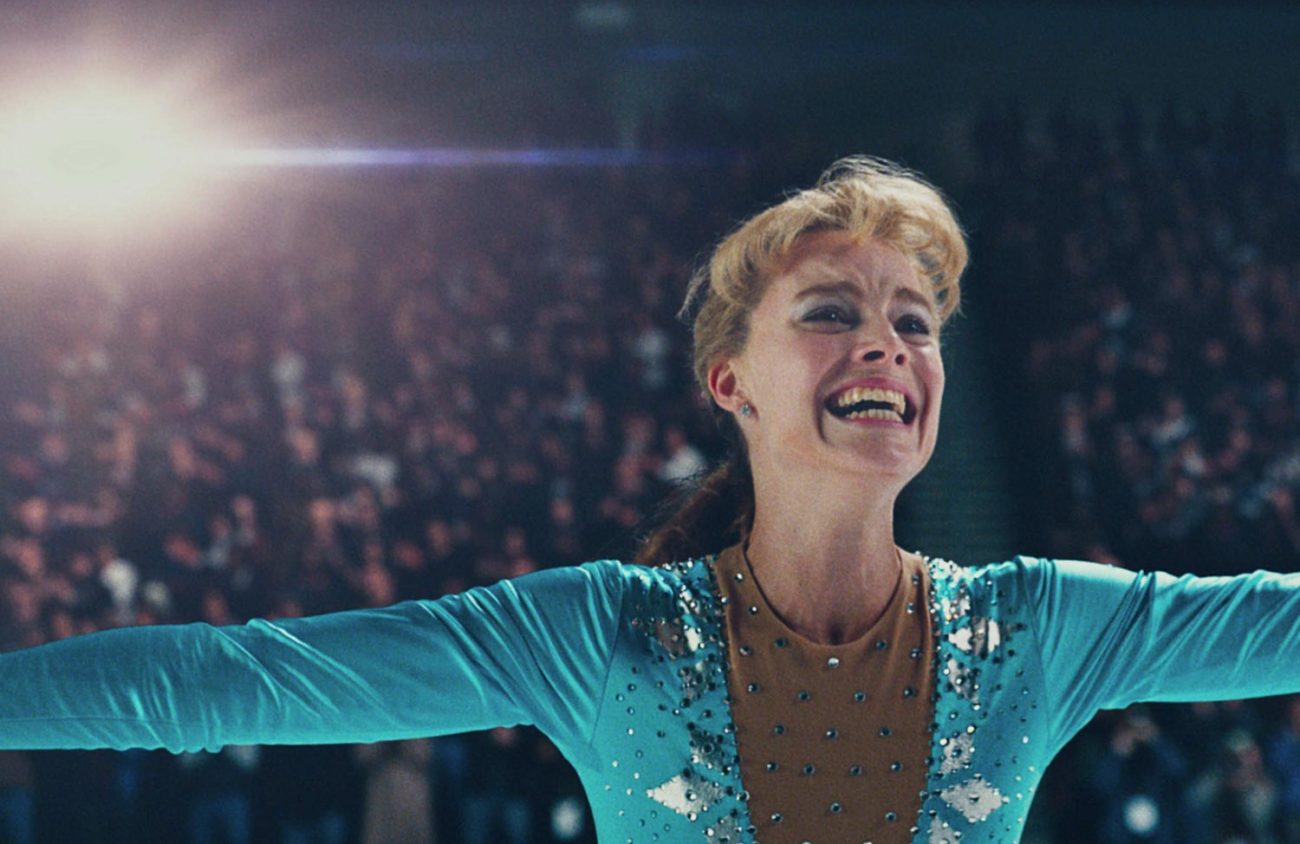I, Tonya is a strange beast. Craig Gillespie’s new film is often painfully accurate in its visual depiction of poverty, but apt to put a quirky song over the harshest images, to remind us what we’re seeing isn’t quite real, isn’t quite accurate, isn’t the strictest biopic.
Sometimes this works; sometimes it feels like a refusal to commit to the seriousness of what’s onscreen (which includes a lot of abuse). When it works, it pairs incredulity with awe: This happened — at least some of it.
Tonya Harding went through hell and still did things no American woman had ever done. Maybe she had some part in the incident that destroyed her career. Maybe she didn’t.
The movie smartly embraces the uncertainty of its stories. Less wisely, it spends too much time with the men involved, Harding’s ex-husband Jeff Gillooly (Sebastian Stan) and a cruelly portrayed Shawn Eckhardt (Paul Walter Hauser). Eckhardt is an utter weirdo — as a clip of an interview with the real Eckhardt demonstrates — but the movie makes a joke of his size, showing him constantly eating, and that strikes a false note in a film this interested in (mis)perceptions and surface judgments.
Nothing is false about Margot Robbie’s performance as Harding. Forget the prosthetics, the training, the sheer unlikeliness of this stunning Australian playing the ordinary looking, rough-around-the-edges Harding. Consider instead the way Robbie carries herself, taut with defensive purpose; the flat look in her eyes; her expression at the end of the film’s re-creation of Harding’s moment of triumph: landing that triple axel in competition. It’s a grin that can’t contain everything she’s feeling: the pride, the ecstasy of having done the thing, the impossible thing, that makes people love her.
The moment is agonizingly bittersweet to watch, both in light of what’s led up to it — the cruel mother (Allison Janney, dry as dry can be), the shitty husband, the endless judgments on her unpolished appearance — and for what we know is coming.
I, Tonya doesn’t stick strictly to the facts, because it doesn’t have to: We all think we know what happened. Her homemade costumes and ’90s hair didn’t fit the permitted narrative; she didn’t play the strictly limited part, the one she was expected to have perfected along with the spins and jumps. After the Kerrigan attack, it was easy — and often supported by the media — to treat her with scorn.
Gillespie’s film shows us a woman forever chafing against expectations, limits and cruelty.
Though occasionally glib, it’s powerfully pointed about how willingly the public accepted the classist tale about what kind of person Harding was.
There’s another layer to the sympathy this movie creates, though, and it’s a much less comfortable one. Is this what it takes to make Harding’s story sympathetic, to let viewers see her as complex, as more than just a punch line? Does it have to be repackaged into an entertaining, sly, winking narrative starring a beautiful actress in order for us, the many-headed hydra that is the viewing public, to view Harding as a whole person?
Even as the film indicts the public for sitting in judgment on Harding, it gives us an easier-to-swallow version of her. Can we transfer our sympathy for the fictional Harding to the real one?
I hope so. I cried at the end of I, Tonya, throat tight with tears in a theater full of people who laughed at things my background wouldn’t let me find funny. Robbie’s performance in a final courtroom scene, when Harding’s entire career is taken from her, is crushing. But I can’t stop thinking about the line between the two of them, the two Tonyas, the two stories — both full of bumps and uncertainties, talent and skill, poor choices and hurt. Maybe it’s just time that lets Harding be viewed with so much more sympathy now. But maybe it’s also that her story got a different package.
